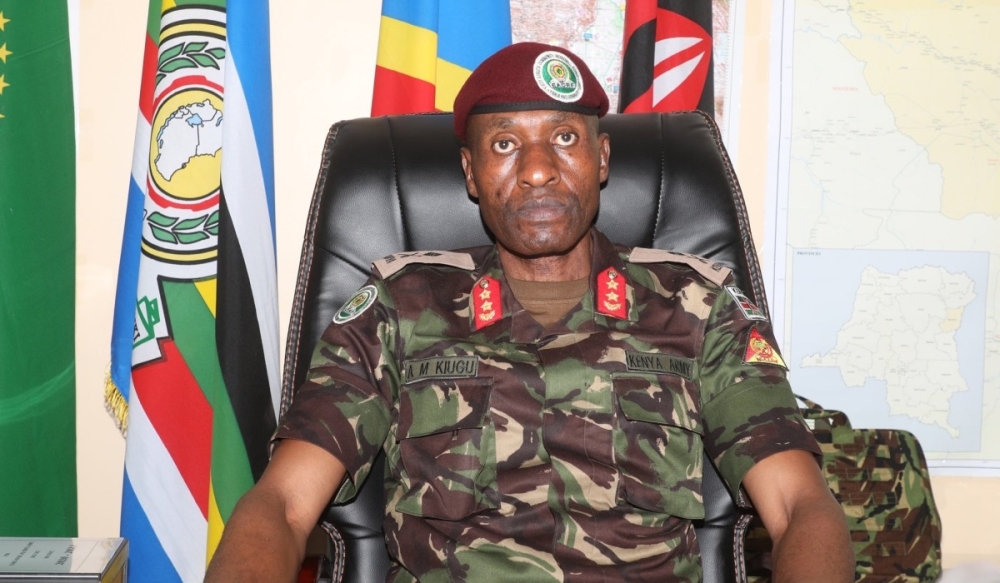

The new force commander of the East African Regional Force (EACRF) assumed his office towards the end of last week and he has his work clearly cut out for him; making sure that all parties involved in stick to the roadmap set out by regional leaders to bring back sanity in the eastern part of the Democratic Republic of Congo.
Maj. Gen. Aphaxard Muthuri Kiugu, a Kenyan general, assumed his office in Goma in the Democratic Republic of Congo on Thursday, May 18. He replaces his compatriot who dramatically resigned a few weeks back, citing growing threat to his life.
The regional force, which had its first boots on ground in November last year, has already had its fair share of challenges, mainly brought about by the lack of cooperation from the host government. The Kinshasa regime has made it so difficult for the multinational force, so much so that the previous force commander found his stay in office untenable and had to leave.
ALSO READ: DR Congo: Of an EAC force commander’s exit and mismatched expectations
Despite the force’s rules of engagement that are clearly spelt out as agreed by regional heads of state, including President Felix Tshisekedi, the Congolese government continues to exert pressure on the force to militarily engage the M23 rebels, which is not part of their mandate.
The force was deployed to facilitate the implementation of the peace process and, interestingly, the rebels have from day one demonstrated goodwill to give a chance to a political solution. That is why they took a step and withdrew from various territories they controlled and ceded them to the regional force.
However, Kinshasa, instead of using this opportunity to now pursue a peaceful end to the security challenges that have ailed this region for decades, now opportunistically has started to demand that the regional force militarily engages the rebel group which their own army and a cocktail of militia groups they coopted failed to dislodge.
ALSO READ: EAC troops failed, says DR Congo's foreign minister
As the new commander assumes office therefore, there is need for the EAC, the regional mechanism under whose framework the force was deployed, to stand up to the Kinshasa regime and remind them to stick to what they assented to during the several meetings where the regional force was mooted.
The EAC secretariat and the office of the facilitator of the peace talks must closely monitor the behavior of Kinshasa and where necessary call them out on their procrastination with regards to implementing what the regional leaders agreed to be done.


